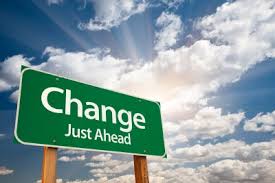In this corner, with hundreds of years of experience, The Edict of Education, the Natural Ability of Every Newborn Child; let's hear for Learning!
And in this corner, gaining strength and popularity over the past few decades, the Beauty of College Applications and the source of Bragging Parents Everywhere; let's hear it for Getting Good Grades!
Education faces a lot of battles. One of the daily battles is Learning vs. Grades. Teachers are on the side of learning and students (to be fair) are on both sides. Some do their best to learn; and some are just doing it for the grade.
I (sometimes) refer to this as "playing school". Some students just play the game.
- Go to school.
- Do what you are told to do.
- Read the book.
- Do your homework.
And Learning takes a back seat to just getting the grade. Teachers are very familiar with this battle. The best teachers engage their students--no matter the subject--and sometimes students discover that they like a subject that used to be just a "grade".
In this battle, as is often the case in public education, it is the teachers who come to the rescue. It is the teachers who instill a love for a subject. Still, I would argue that we want support from parents too.
School can (certainly) be fun; but school shouldn't be a game to be won or lost. All students can learn and all students can see the value of learning with the right incentives and with the help of caring adults--at school and at home.
We know that students can graduate high school just by "playing school"; but those same students often struggle in college. A recent report from the National Center for Education Statistics (NCES) found that only 42% of students that went to college immediately after high school ended up earning a bachelor's degree within eight years of graduating from high school. Another 11 percent had earned a Master's degree. (
See report here; go to page 3, third bullet) What happened to everyone else? And students that began college more than 13 months after high school had even worse results.
So keep fighting the battle of Learning vs. Getting Good Grades. Learning is the heavyweight champion of public education.
 Our best teachers love what they do and they love working with students. The relationships that teachers have with their students help to foster better student achievement. And it is no surprise that this is the case. Students want to make their teachers proud of the work that they can do in the same way that students want to make their parents proud. When teachers show the students that they really care about them and their progress, students respond with better progress.
Our best teachers love what they do and they love working with students. The relationships that teachers have with their students help to foster better student achievement. And it is no surprise that this is the case. Students want to make their teachers proud of the work that they can do in the same way that students want to make their parents proud. When teachers show the students that they really care about them and their progress, students respond with better progress.
.jpg)





